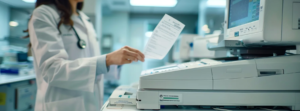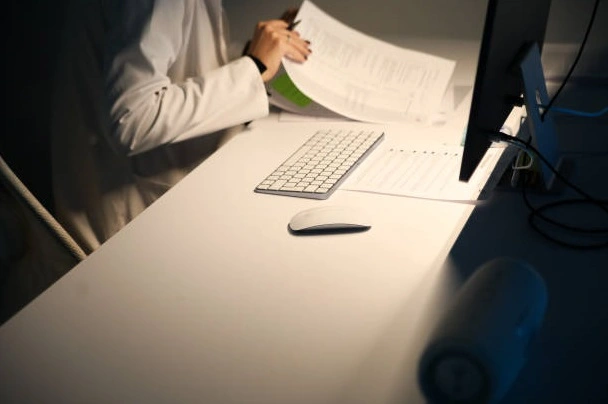The Health Insurance Portability and Accountability Act (HIPAA) sets the standard for sensitive patient data protection. Entities that deal with protected health information (PHI) must have physical, network, and process security measures in place which includes secure faxing practices. Failing to adhere to these standards can have serious implications, including legal penalties and breaches of patient trust. In this article, we explore why HIPAA compliance is crucial in healthcare, the risks of non-compliance, and how to ensure secure fax communication.
Understanding HIPAA and Its Impact on Fax Communications

HIPAA, enacted in 1996, aims to safeguard personal health information from unauthorized access and breaches. While email and other digital communication methods have become prevalent, fax machines continue to be a cornerstone in healthcare communication. It is crucial for healthcare organizations to understand that the same rules apply to faxed PHI as to other forms of data transfer, requiring strict compliance protocols.
Traditional faxing involves sending sensitive information over phone lines, making it susceptible to interception. As such, HIPAA fax solutions employ advanced encryption and security measures to protect the data. It’s imperative that all healthcare providers and associated businesses understand the nuances of HIPAA to ensure they maintain compliance during every fax transmission.
The Risks of Non-Compliant Faxing in Healthcare Data Privacy
Faxing in the healthcare sector carries inherent risks if not conducted within the framework of HIPAA guidelines. Non-compliant faxing can leave patient data exposed to unauthorized parties, leading to breaches of confidentiality and potential financial and legal repercussions for the healthcare provider. Such incidents can damage the reputation of providers and erode the trust patients place in the healthcare system.
Beyond the immediate impacts, breaches of patient data through non-compliant faxing can have long-lasting effects on individuals. Compromised health information could lead to identity theft, insurance fraud, and other personal crises for patients. For healthcare organizations, the penalties include substantial fines, corrective action plans, and even criminal charges in severe cases of negligence.
Advantages of Using HIPAA Compliant Fax Services for Healthcare Providers

Adopting HIPAA compliant fax services provides substantial advantages for healthcare providers. Firstly, it ensures compliance with federal regulations, which protects providers from significant fines and legal issues. More importantly, it secures the confidentiality and integrity of patient health information, a cornerstone of professional healthcare practice.
Secure fax services also streamline workflow within healthcare organizations. By utilizing electronic faxing, providers can send and receive faxes directly from their electronic health record (EHR) systems, saving time and reducing the risk of errors associated with manual handling. Automated features such as delivery notifications and read receipts add another layer of traceability and accountability.
Investing in HIPAA compliant faxing solutions demonstrates a commitment to patient privacy and builds trust. Patients can feel confident that their sensitive data is handled with the utmost care, encouraging a more open and honest patient-provider relationship. This confidence may facilitate better healthcare outcomes as patients are more likely to share crucial health information.
Implementing Secure Fax Protocols to Enhance Patient Confidentiality
Securing fax communications in healthcare is vital for enhancing patient confidentiality. Health organizations must develop and implement rigorous fax protocols that comply with HIPAA regulations. This involves adopting secure technologies, which ensure encryption of data in transit and at rest, and setting up clear policies for the proper handling and distribution of PHI.
Training staff on the importance of secure faxing is another crucial step in protecting patient privacy. Healthcare workers should be aware of the potential pitfalls and best practices surrounding faxing PHI. Regular updating of training materials and procedures helps staff remain vigilant against evolving threats and aware of any changes in compliance requirements.
Regular audits and assessments of fax protocols can identify potential vulnerabilities in the existing system. By analyzing how faxes are sent, received, and stored, healthcare providers can make informed decisions on improving their communication systems. The goal is to minimize risks to patient confidentiality while ensuring a seamless and efficient exchange of information.
Overall, the importance of HIPAA-compliant faxing cannot be overstated in terms of legal requirements and ethical responsibility. It is the safety net that preserves patient privacy and upholds the integrity of healthcare services. With conscientious efforts to maintain compliance, healthcare providers can ensure that they protect their patients’ sensitive information and their own professional reputations.



